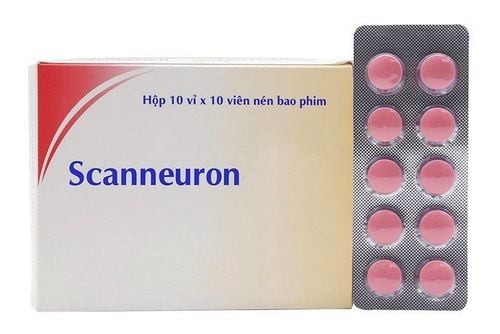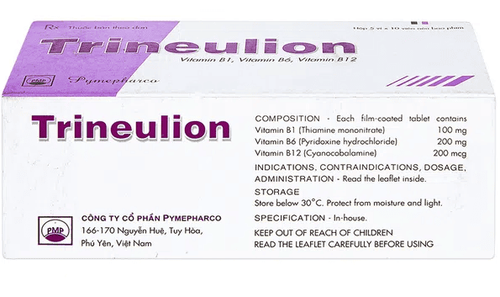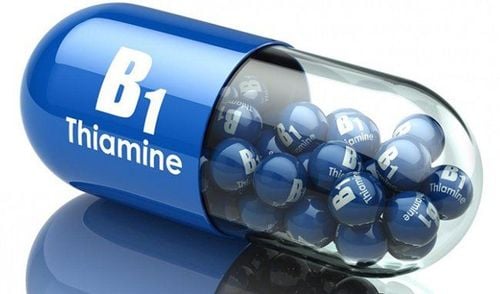This is an automatically translated article.
Vitamin B1 plays an important role in many organs in the body. A deficiency of this vitamin in the body will cause many dangerous diseases, including beriberi.
1.What is Vitamin B1? Vitamin B1 also known as thiamine, is one of the eight essential B vitamins that have many important functions in the body. This vitamin is used by most cells and is responsible for converting food into energy. Since the human body cannot produce thiamine, it must be obtained through a variety of thiamine-rich foods such as meat, nuts, and whole grains. Insufficient intake of these foods can lead to vitamin B1 deficiency (also known as beriberi).
2. What is Beriberi? Beriberi is a edematous disease caused by a deficiency of vitamin B1. The disease is classified into two types: wet beriberi and dry beriberi. Wet edema affects the heart and circulatory system. In some severe cases, wet edema can even lead to heart failure. Dry edema damages nerves and causes loss of muscle tone and even paralysis. Accordingly, Beriberi disease can be life-threatening if left untreated.
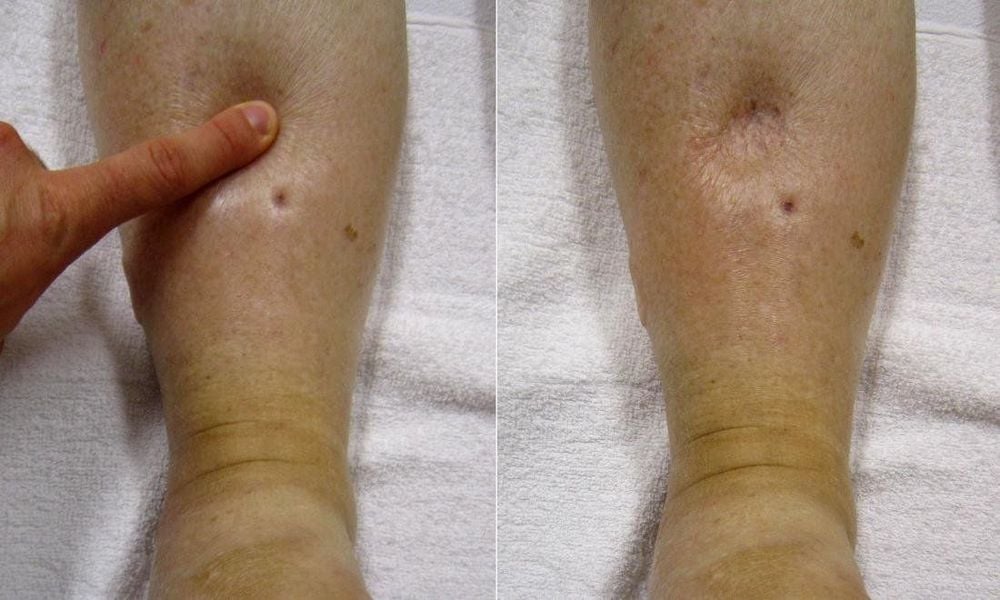
Hình ảnh người bệnh mắc bệnh Beriberi với biểu hiện phù 2 chi dưới
3. Causes of Beriberi The main cause of Beriberi is a diet lacking in vitamin B1. This disease is common in areas where people have a habit of eating too much milled rice, or rice that only contains about 1/10th of the thiamin content of normal white rice.
Other possible causes of thiamin deficiency include:
Alcoholics: These people have difficulty absorbing and storing thiamin. Genetic Beriberi: This is a very rare case where the body cannot absorb thiamin from food. Pregnant women, nursing mothers, and people with hyperthyroidism need a thiamine supplement. Prolonged diarrhea or use of diuretics also leads to thiamine deficiency. Infants fed formula milk contain low levels of thiamin. Patients on dialysis are also at increased risk of beriberi due to a lack of thiamine stores.
4. Symptoms of Beriberi Disease Symptoms of Beriberi disease are initially silent, unknown, so they are often overlooked. The patient only feels tired, the legs get tired quickly and there is a feeling of heaviness in the calves. In the evening, the legs are slightly swollen in the ankle area and numb, there is a tingling feeling like ants crawling in the calves, or cramps, sometimes heart palpitations. If left untreated, the disease will get worse.
Beriberi disease is divided into 3 degrees:
Mild: The patient has recently lost or decreased sensation, decreased reflexes, mainly in the lower extremities. At this time, if treated, the disease will heal quickly. Moderate: Patient has loss of sensation, loss of tendon reflexes, myasthenia gravis, difficulty walking but no muscle atrophy or unknown muscle atrophy. In severe degree: The patient has edema of the entire lower extremities, loss of tendon reflexes, loss of sensation, muscle atrophy, unable to walk, possibly death from heart failure, especially in children.
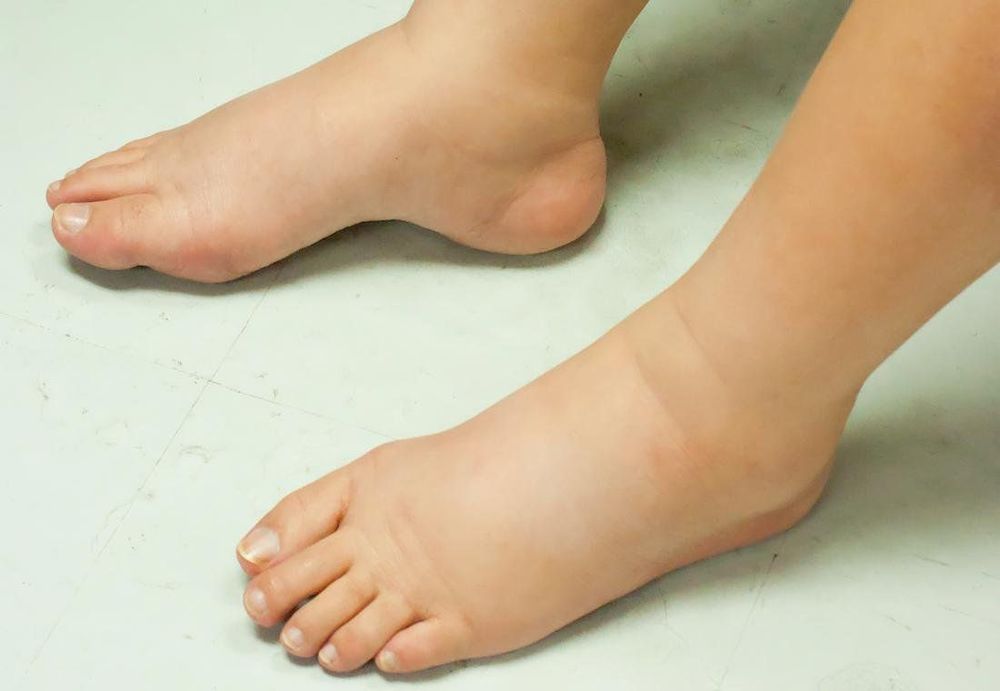
Người bệnh Beriberi giai đoạn nặng bị phù toàn bộ 2 chi dưới
5. Complications of Beriberi Disease If mild vitamin B1 deficiency manifests in the nervous system as peripheral neuritis, sensory disturbances in the extremities, sensation may be increased or lost. Muscle tone gradually decreases and can cause paralysis or paralysis of a limb.
Severe vitamin B1 deficiency causes personality disorders, depression, lack of initiative and poor memory as in Wernicke encephalopathy and, if treated late, Korsakoff psychosis.
6. Diagnosis of Beriberi Beriberi disease is diagnosed by a doctor based on tests: Blood and urine tests help measure vitamin B1 levels in the body. Determination of transketolase enzyme activity of red blood cells. If the body cannot absorb thiamin, thiamin levels in the blood will be low and in the urine will be high.
In addition, the doctor also relies on brain function tests to determine if the patient has a lack of coordination, difficulty walking, degree of drooping of the eyelids, and weak reflexes. or not. In later stages, patients with Beriberi will experience memory loss, confusion, and delusional states.
7. Treatment of Beriberi The symptoms of Beriberi are quite serious, but the disease can be completely cured easily with vitamin B1 (thiamin) supplements. In severe cases, patients may require intravenous thiamine infusion. Blood tests for thiamin help monitor the body's ability to absorb thiamin.
Doctors will also perform a neurological exam to look for lack of coordination, difficulty walking, drooping eyelids, and weak reflexes. People with late-stage vitamin B1 deficiency show memory loss, confusion, or delusions.
8. Appropriate lifestyle As a disease stemming from nutritional deficiencies, the best method of prevention and treatment is to maintain a suitable diet. You should maintain a healthy, balanced diet that includes foods rich in vitamin B1 such as: beans and legumes, nuts, meat, fish, whole grains, nuts, dairy...

Vitmain B1 được tìm thấy trong nhiều loại thực phẩm khác nhau
If formula feeding an infant, parents should check that it has enough vitamin B1. Always make sure to buy infant formula from a trusted source.
Limiting alcohol intake will reduce the risk of developing beriberi. Anyone who abuses alcohol should be tested regularly for vitamin B1 deficiency.
Vinmec International General Hospital is the address for examination, treatment and prevention of diseases. When performing the examination process at Vinmec, customers will be welcomed and used modern facilities and equipment along with perfect medical services under the guidance and advice of experts. Good doctors, well-trained both at home and abroad.
Please dial HOTLINE for more information or register for an appointment HERE. Download MyVinmec app to make appointments faster and to manage your bookings easily.




